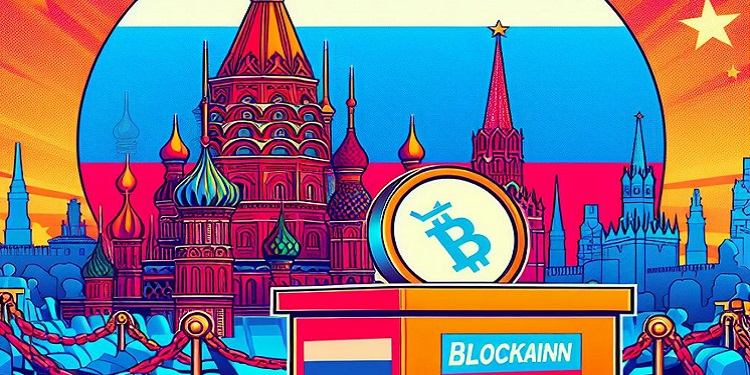In the aftermath of Vladimir Putin’s decisive win in the recent Russian presidential election, deemed by many as predetermined and lacking in legitimacy, exiled opposition figure Mark Feygin is at the forefront of a campaign to allow Russians to clandestinely register a “protest vote” against Putin using blockchain technology.
Blockchain Technology Pioneers Anonymous Dissent in Russia
Led by Feygin, who is currently wanted within Russia, the initiative, although lacking legal sanction within the country, aims to reinforce endeavors to challenge Putin’s leadership and offer Russians a channel to voice dissent in a nation where opposition carries significant risks, particularly in light of the recent demise of opposition leader Alexei Navalny while in custody in an Arctic detention facility.
Utilizing the Russia2024 app, fueled by Rarimo’s Freedom Tool, the referendum employs Arbitrum blockchain and zero-knowledge cryptography to safeguard the anonymity of voters. Exclusive to Russian citizens, estimated at approximately 34.6 million individuals, the initiative allows eligible participants to register their protest votes anonymously.
To participate, individuals must download the Russia2024 app and confirm their citizenship by scanning their passports, leveraging the biometric chip embedded within to authenticate the voter’s identity and enable anonymous voting. Advocates of the app express confidence in the security of the voting process, assuring voters of protection from potential repercussions.
Co-founder of Freedom Tool, Lasha Antadze, a citizen of Ukraine and Georgia, with prior involvement in digitizing state property privatization in Ukraine, highlights the decentralized architecture of the voting system, designed to withstand attacks, interference, or suppression.
Although initially removed from the Apple app store, the Russia2024 app is anticipated to be reinstated and is presently accessible via Google’s app store.
The referendum coincides with expectations that Putin’s re-election will furnish him with the resources to perpetuate Russia’s conflict with Ukraine. Antadze underscores the open-source nature of the app’s technology, with contributions from anonymous cryptography experts within Russia, characterizing it as a form of “wartime defense technology.”
Antadze envisions broader applications for this technology beyond Russia, asserting its capacity to ensure authenticity and substantially reduce the expenses associated with electoral processes in other nations:
“We are disseminating the open-source technology widely. It’s not limited to Ukrainians or Georgians. […] We have received numerous contributions, including from anonymous cryptography experts within Russia. It represents a form of defensive technology in times of conflict.”
This development follows a late 2023 investigation implicating potential Russian connections to the FTX crypto exchange hack.
